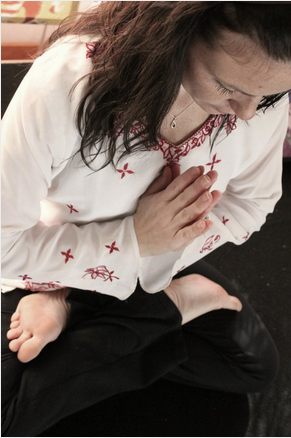
Healthwise: The Benefits of Meditation
In the past, health was almost always associated with the physical body. Nowadays, more people are discovering the benefits of exercising the mind. The advantages of adding brain-teasers and crosswords to your routine have been lauded over the last few decades because they sharpen the mind and help keep dementia at bay. But even more at the forefront these days are the multiple health benefits of meditation.
Science
The simple truth is that meditation is a discipline that can improve the structure of the brain and thereby encourage positive thought patterns to replace negative stress responses. Kelly McGonigal from Stanford University outlined how regular meditation leads to a cortical gyrification, which enhances neural processing. Gyrification is a good thing because the less gyrification, the more susceptible one is to depression, aging and Alzheimer’s disease. This means that meditation leads to bigger and more efficient brains (kellymcgonigal.com)
Benefits
There are multiple benefits to a regular meditation practice, including:
- Improved attention span
- Reduced stress
- Lower blood pressure
- Fewer feelings of depression
- Reduced risk of dementia
- Positive attitude
Simple Techniques
When learning to meditate, it is important to understand that frequency is more significant than duration. Therefore, it is more beneficial to meditate every day for three to five minutes, than to meditate for 20 minutes once a week. Try one or all of the simple techniques listed below. Set up in a quiet space and allow yourself these few minutes to release mental tension. With practice, you may even be able to transfer your skills to busy environments, such as when using public transportation.
- Breath-focused Meditation: Focus on your breath. Count your breath cycles (inhale/exhale) until you reach 10 and then start again.
- Mindfulness Meditation: Become mindful of your breath. Notice your chest and belly rise and fall in connection with your breath.
- Notice how you feel. Allow your thoughts to flow freely. Acknowledge each thought, and then let it go without dwelling on one single thought.
- Walking Meditation: Stand with shoulders away from the ears and chest open. Begin walking slowly and deliberately. While walking, become aware of each step, including the distribution of your body weight. The great thing about this technique is that it can be practiced discretely in almost any environment.
- Visualization Meditation: Visualize an object and focus on the details of the mental image. For example, picture a rose. Imagine the petals, the stem, the leaves, a drop of water rolling down the petals, etc. Try to block all other thoughts from your mind. If your mind wanders, simply bring it back to your mental visualization.
- Loving-kindness Meditation: Sit quietly and close your eyes. Think of someone who would benefit from emotional support. Think positive thoughts and direct this loving-kindness towards that person, whether a friend, family member or complete stranger.
Whatever your style or preference, a regular meditation practice will surely help prepare you for the hectic holiday season, or any other challenge life may bring.
Just breathe!









